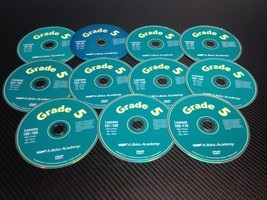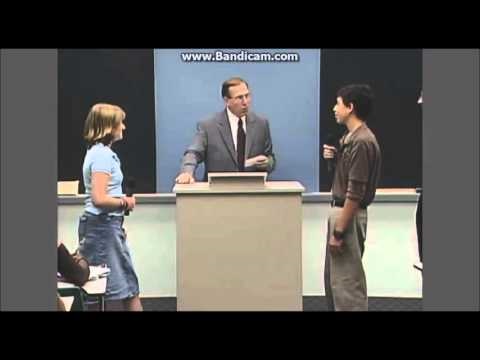Curriculums
So, you know you want to homeschool, but how do you find a good curriculum? Or maybe you have already been homeschooling, but your curriculum isn’t working, or you wonder if your child could gain more from a different curriculum?
Probably one of the most confusing aspects of homeschooling is trying to understand exactly what curriculums are available, and which will meet your child’s needs. This is because there are literally dozens of homeschooling curriculums, and most of the major curriculum publishers do a lot of marketing, so you may read many conflicting reports. What’s more, each homeschooling family probably has their own favorites, so many of the parent reviews on YouTube may be biased or fit the needs of one family and not another.
Let’s start at the beginning, by explaining exactly what is meant by a valid homeschool curriculum. Then, we will provide our personal reviews of many of them.
What qualifies as a valid homeschool curriculum?



Homeschool styles can be broken down into several different types. All of the types listed below are valid if they come from a homeschooling distributor.
- Book Packs – Book Packs are packets of books, worksheets, quizzes, and tests that can be purchased from a homeschool distributor. Book Packs generally come with a teacher’s manuel with step-by-step instructions for the parent to follow in teaching the curriculum. They also come with a correction manuel with the answers, for those of us who don’t know everything. They often have suggestions for scoring and grading. With Book Packs, parents are responsible for the full instruction of the child. There may be passages for children to read in their textbooks, but the parent is responsible for the actual teaching of the material, administering quizzes and tests, correcting work, and recording scores. Parents will need to keep good records of grades and prepare their own report cards and end of year “final grades”. They are also responsible for making and keeping transcripts that can be used to enroll in college after graduation. Book Packs require a high level of interaction, motivation, time, record-keeping, and organization from homeschooling parents.
- DVD/Video – Some curriculums come on DVD’s or videos online. These are made specifically for homeschool and provide a full year or semester of instruction. The teaching style of DVD’s and On-line videos varies. Some, like Abeka, depict a teacher and classroom where the child can feel like they are “part of the class”. Others, like Monarch, have reading materials or videos. DVD’s and online videos do not have a live teacher giving instruction directly to the homeschooled child. However, some do offer a service where children can call with curriculum questions. Although parents don’t have to be as involved with actual instruction, they do still have to assist the child with understanding the material, and depending upon the curriculum, sometimes administering tests and keeping grades. Parents are responsible for report cards and keeping records and transcripts.
- Academies – Academies vary greatly with regard to how they work. But, in a nutshell, an Academy is an actual on-line school which is responsible for the instruction of the child; grading; and most of the time, transcripts. There are some exceptions regarding the keeping of transcripts. Most academies have strict guidelines that must be followed, and the majority have advanced level work. Some academies require students to be at least 13 or older to enroll. Now days, some of the academies offer live classes and live teachers. Academies vary in the amount of interaction between students.
It is up to you as a parent to pick which style of homeschool curriculum you want to use for your child. Book Packs require a lot of time and attention from the parents, whereas academies do most of the work of teaching for the parent. But, if money is tight, academies may be too costly for some families. DVD/Video programs fall in the middle cost-wise. They do some of the teaching for parents, but not all. In most areas, any of these styles of homeschooling are valid.
The good news is that the beauty of homeschool is that it is flexible. So, if for instance, you don’t feel qualified to teach higher level math to your highschooler, you can purchase a math class from an academy that comes with a live teacher and a live class, and purchase book backs for something like Art, to reduce costs.
Which publisher should I use?
We would love to tell you that once you know which style of homeschool you want to use, it gets easier from there. But it really doesn’t. That’s because not all homeschooling curriculums are created equally. Particularly since Covid, there has been a boom of online academies and other homeschooling options, but not all of them have the experience or the investment in homeschool itself. It is just a quick way to make a “buck”. Therefore, it is our recommendation to stick to the publishers and academies that have been vetted and have acquired a good reputation through the years.

Book Packs have been around a very long time, so there are many good publishers out there. Some include: Abeka, Sonlight, Lifepack, and Saxon.
There are not as many DVD/Online options. But there is a huge difference in the quality of the ones that are available. For example, Abeka gives a great well-rounded, classic education. But BJU is not the same quality. Many families use them, but we have found that they are a much lower-level academic tool. Monarch is an online curriculum that many families use, but we have found their platform to be extremely outdated, boring, and difficult for students to use without additional instruction.
Homeschooling academies are flooding the market, but they are not all the same, either. There several types of academies:
- Abeka Academy – Students watch videos of a teacher in front of a classroom at Pennsacola Christian Academy. Students call in with questions and someone will get back to them within 24 hours. Homeschooling students receive books and handouts. Parents correct and send in work. Parents are responsible for grades. There is no interaction with other students. Abeka
- Online Academies Without Live Classes – These are conducted similar to an online college class. Students watch pre-recorded videos and read passages online. Work is assigned by a live teacher. Teacher is available for questions through email or blackboard. There is no live interaction between students, but some academies allow students to interact with other students on a discussion board. Liberty Academy, Alpha & Omega.
- Online Academies with Live Classes – These are done using a college blackboard, whereby students read materials online and watch videos online, but there are live classes scheduled once or twice a week. With these live classes, students can see the teacher, but the teacher cannot see the student. Students cannot see other students, but they can communicate live through the chat function with both the teacher and other students. There are usually group activities. There is a higher accountability from teachers with these academy classes. Teachers do most of the teaching and grading. HSLDA Academy, Liberty Academy, Sevenstar, Florida Virtual
- Online Academies with Fully Live Classes – These academies use a platform like Zoom to make classes fully live. Students and teachers can see each other. There is usually good peer interaction. Classes generally meet once or twice a week, and students complete online assignments in between. Some require students to use physical books as well. Excelsior Classes

Teaching Style
Just when you thought it was seeming a little less confusing, we need to throw teaching style into the mix.
There are different types of teaching philosophies. Some of these include: Classical Education, Project Based, Charlotte Mason, and Montessori. For the purpose of this website, we are only going to deal with Classical Education and Project Based styles, simply because both Charlotte Mason and Montessori are less mainstream and not all curriculums in these styles are legally useable for a curriculum in some areas.
Different curriculums utilize different teaching styles.
- Classical Education – Classical education depends on a three-part process of training the mind. The early years of school are spent in absorbing facts, systematically laying the foundations for advanced study. In the middle grades, students learn to think through arguments. In the high school years, they learn to express themselves. You can read more about it on the “Well-Trained Mind” website. Please note that we are not affiliated with this organization. We just think they explained it well. This would be considered your traditional education method. Students would listen to or read instruction, take notes, and complete tests and quizzes. They may also write reports or give oral reports. Abeka, BJU, Monarch
- Project Based – With a project based education, students do much of their learning through projects. An example of this might be a student doing a report on a book by making a newspaper page with different facts about the book put into different stories, ads, and etc. Or it could be a student making a model volcano in science class. The important difference is that students learn by “doing” something. That “doing” could be writing a report, or it could be acting out a drama about the report. “US News and World Reports” gives a good description of project based education in their article, “What is Project Based Education?” Liberty Academy, Excelsior Classes, HSLDA Academy
Students generally learn better with one or the other of the styles, depending upon how their brains are structured. For example, sometimes autistic children perform better with project based curriculums because they are concrete thinkers, and doing something is more of a concrete activity.
One of the things you will want to look at before you select a curriculum is whether your child learns more easily when listening to someone talk in front of a class or when doing things hands-on.
Reviews
One of the things that we felt to be very important when we started this website is to give parents reviews of some of the homeschool curriculums as a starting point, because one of the hardest aspects of homeschooling we have found is knowing what curriculum to use. Many times for parents, it is trial and error, which means losing money and time. We want to help parents avoid some of this by recommending some of the more trustworthy choices.
All of the ones reviewed in this website are curriculums that we have observed in use by homeschooling children. So, if you don’t see one listed, it may not be because it wasn’t good, but rather that we have not used it ourselves, and therefore, cannot recommend it.
We are not compensated in any way by any of these publishers or academies.
Our reviews are strictly our opinion after seeing them used. No one curriculum is good for every child, so we are providing this service only as a place to start in your search for the perfect fit for your child.
Follow the menu for reviews of various types of homeschool curriculums.
